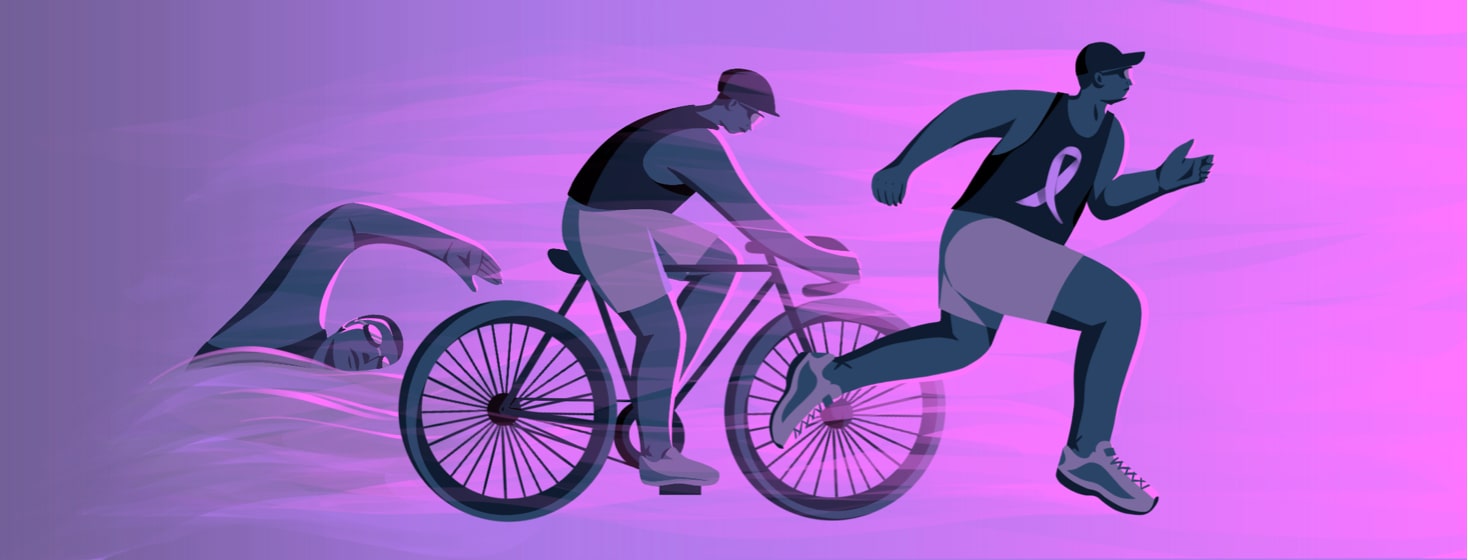Ironman Dan: Battling Early-Onset Alzheimer's
The editorial team at AlzheimersDisease.net is highlighting people in the Alzheimer's community and their journeys in a series of Instagram interviews. We talked to Dan Jaworski about how being diagnosed with early-onset Alzheimer's has impacted his life.
Early-onset Alzheimer's diagnosis
When were you diagnosed with Alzheimer's disease? What led you to talk to your doctor about the symptoms you were experiencing?
I was diagnosed with early-onset Alzheimer's on October 16, 2019. My family had noticed memory issues and me repeating myself on a family trip. I hadn't noticed anything. I knew something was seriously wrong when my wife and I were driving to a college 3 miles from the house that I had been to hundreds of times and I didn't know how to get there.
I was out running when I got the call about my diagnosis. It literally brought me to my knees. I knew the math. Once diagnosed, your life expectancy is a minimum of 3 years and a max of 20, with an average of 8. I did 2 things upon getting this news. The first was within minutes. I contacted Ironman and left copious messages asking if I could get into Ironman Kona.
The 2nd was I got a tattoo that says "carpe diem." Seize the day!
Determined to beat it
How did you react to your diagnosis? How did you feel emotionally and what were the next steps you took to plan for your future?
After processing this, I made some quick decisions. I could not change what happened, but I got to choose my response. Next doctor visit, I told him there is always an outlier, someone is going to beat this – it's going to be me, and he could write the book.
Going to war: battle mode
So I am in full battle mode versus the disease. I am maxing out on diet, exercise, brain engagement, and sleep. I will never surrender.
Diet is critical. I believe food has pharmacological properties. You are what you eat. I am following the Mediterranean diet. Predominantly plant-based and trying to avoid processed foods. Think eating closer to the vine. Great for health, especially brain health, and keeps inflammation down.
Exercise is another critical part. I exercise from 30 minutes to 6 hours a day with 1 off day per week with my Ironman training. Movement is medicine.
Sleep is also a major cornerstone. It is the wash cycle for our brain. Try to get 8 hours a night. Not easy, but that is the goal. Best to unplug from devices – the earlier in the evening, the better.
Brain engagement. The mind is a muscle. Use it or lose it. I start my day but doing the New York Times spelling bee and Soduku. I also take Spanish lessons every day using Duolingo. Not fluent at all but enjoy the process. The best app I have found is BrainHQ, which has a wide variety of highly challenging mental tasks. Also, when COVID-19 clears, I will go back to yoga and tai-chi.
Breaking the news about my early-onset diagnosis
Did you tell your family and friends right away about your diagnosis? How did they respond? Did they respond in a supportive way?
I did not initially tell family and friends, as I was more consumed with how to beat it. It was extremely hard to tell my mom about my diagnosis. It rocked her and took some time for her to process.
My wife and kids have been awesome. They all surprised me by getting "carpe diem" tattoos. Many of my friends didn't believe it, probably because I am in the early innings.
Stigma with early-onset Alzheimer's
Do you experience stigma when you tell people about your diagnosis? How do you address this and did it surprise you?
I am very straightforward and open about my journey. I am trying to bring awareness to this disease and find others like me. I am too focused on that to worry about how others react.
Training for Ironman races
A large part of your story and journey is training for ironmans. Before your diagnosis, was participating in Ironman events a part of your life? What made you want to get into participating in Ironman competitions? How does participating in these races benefit you?
View this post on Instagram
I did my first triathlon in 1992. It's just kind of morphed into full Ironman races. It has been extremely beneficial from a mindset for battling the disease. When I am exercising, I feel like the disease can't catch me.
I have dedicated each mile of Ironman Kona to someone who has been impacted by the disease. I have more than 140 people who I will be swimming, biking, and running with me – many of them angels.
To those who have just been diagnosed
What would you tell someone just diagnosed with Alzheimer’s and their caregivers?
Look for the beauty and strength in the struggle. The Alzheimer's community is loving, caring, and sharing. Fight the disease with lifestyle changes. It will buy time and make you feel like a badass. Get your house in order: finances, estate planning, and power of attorney issues solved now.
Do you have a diagnosis story that you want to share? Our community wants to hear from you!

Join the conversation